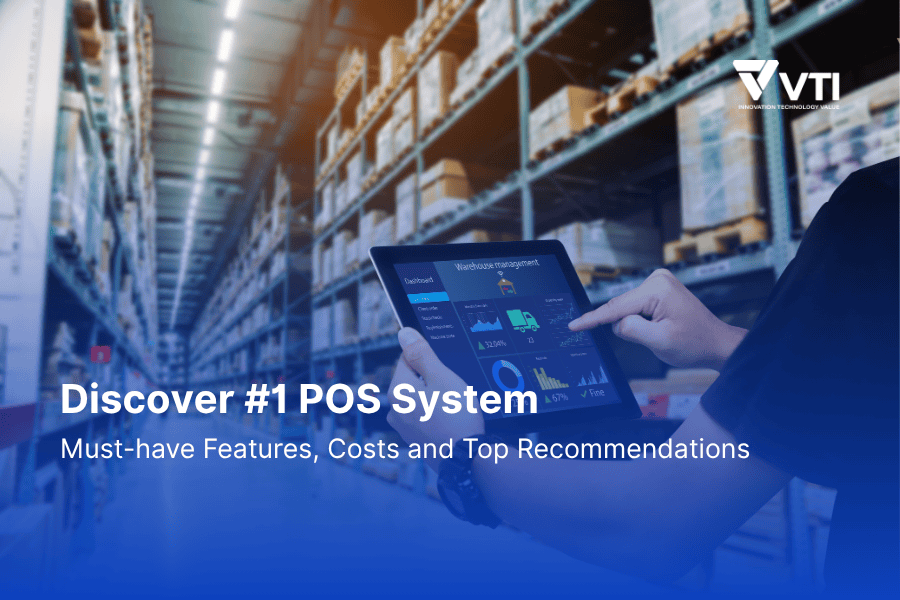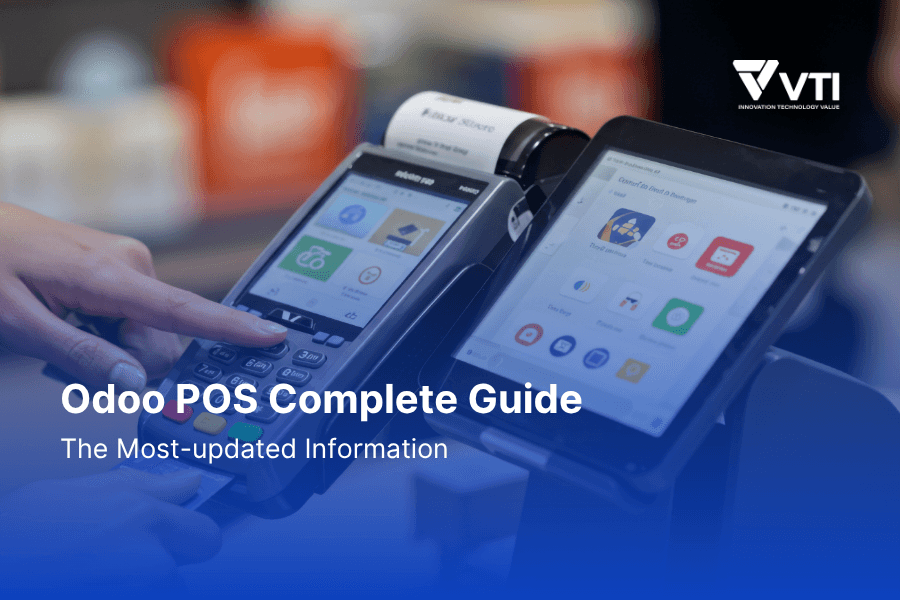IT outsourcing services have been known as the ultimate solution for businesses to save costs while integrating modern technologies into their operations or products in a short period. However, not all businesses manage to carry out the perfect outputs and select a suitable outsourcing vendor. Therefore, in this article, we will get to know some typical types of IT outsourcing models, and how to choose the best one among them, based on your business needs.
What is IT outsourcing?
IT outsourcing refers to the practice of hiring an external service provider to deal with in-house IT projects. The outsourced team can handle a variety of tasks, from adopting AI tools to the existing internal system, developing a mobile application, supporting maintenance, and migrating a whole on-premise infrastructure to the cloud. Depending on the complexity of the project and the demand, businesses can choose to outsource a whole project or just a part of it. To deliver the final outputs on time, many tech giants, which have a lot of tech experts, still choose to outsource. For small and medium enterprises or startups, IT outsourcing is a good solution that can help them catch up with new trends in technology on a budget.

>>> Read more: Software Outsourcing: A Guide To Human Resource Optimization
3 Common types of IT outsourcing models
Below are three common types of IT outsourcing services. The term can vary for each IT outsourcing vendor. You can look at its definition and features to see which type may suit your business needs, and what you want to expect when discussing with the potential outsourcing vendors.

Offshore Development Center (ODC)
An offshore development center (ODC) refers to a specialized team of developers situated outside the client’s nation that performs IT services. ODCs are typically set up by companies that want to outsource their IT needs to a team of experienced and skilled developers who work remotely.Often, an ODC team will work solely for one client company. They are considered an extended part of the IT department of that company. However, the client company does not need to take care of other costs for those employees, such as insurance, salary, working conditions, etc. They just need to pay the service fee to the outsourcing vendor.One of the key concerns for clients when working with an ODC is security. To deal with this, most reliable ODC teams have strict security protocols in place. All team members are required to work in separate areas which provide limited access only to authorized personnel. Many ODCs also invest more in state-of-the-art security methods such as firewalls, encryption, and secure networks to protect client data and documents.

Project-based
While an ODC’s engagement model is often long-term, project-based outsourcing teams are built for a single project with a set scope, timing, and budget. The team members in the project-based model can be assigned to work on multiple projects over time.This type of IT outsourcing contract can be suitable for companies that want to outsource a part of a big project. They are working under the pressure of time to get the final output as soon as possible. Therefore, a project-based outsourcing model that has loose control and is result-oriented can be a good match.
>>> Read more: Top 5 IT Outsourcing Countries in 2023
Dedicated team
A dedicated team works the same way as ODC. However, all the team members will work on-site in the business client’s office. Many companies prefer this type of IT outsourcing model, partly because it is suitable for communication, easy to share the workflow, and suitable for their working styles.Due to the living cost and other responsibilities, not all companies can afford a dedicated team for a long time. Meanwhile, the ODC team can function well even when working remotely and is easy to scale up in a short time.
What are the differences between these types of IT outsourcing models?
Based on the preferences and the business problems, you can weigh the pros and cons of all common types of IT outsourcing contracts to select the most suitable one. The table below will briefly show the differences between ODC, project-based, and dedicated team outsourcing.
| ODC | Project-based | Dedicated team | |
| Scope of work | Limited scope of work, team size, and the skill sets needed that follow the client’s requirements. | Work on the project within a specific timeline, budget, and scope of work predefined by the client. | Receive tasks directly from the project manager, as they will work on-site. |
| Duration | Strive to build a long-term relationship between the client and the ODC team. | Short-term engagement that ends when the project is completed. | Depending on the contract. Often lasts for several months. |
| Type of work | Offsite, at the IT outsourcing provider’s office. | Offsite, at the IT outsourcing provider’s office. | On-site, at the business client’s office. |
| Prices | More expensive than project-based outsourcing in the short term. Still, they offer better value in the long term. | Can be more cost-effective for companies with short-term development needs. | High, due to the cost for the employees to work overseas. |
How to choose the right types of IT outsourcing models for your business?
Choosing the right IT outsourcing models is a critical decision that can have a significant impact on the success of your project. Based on your business needs, you can answer some questions below, so as to have a clear image of the ideal type of collaboration.
- The scope of work: Is your project complex? What type of technology does it require? What is the estimated number of employees needed to complete? How long does it take to get the finished product?
- Budget: How much is your business willing to spend on this project? If the budget is low, it is recommended to choose a project-based model, for example. With the fixed scope of work and budget, there are no extended expenses during and after the project.
- Level of control and flexibility: What is the level of engagement that the project requires? Does your business want to communicate with employees working remotely? If your business only wants to work with the outsourced team for a long time, then an ODC model might be a good option. They dedicate themselves to one company and focus solely on your business’s tasks. And if your business prefers face-to-face interactions, then a dedicated team is highly recommended.
You can also list a number of potential vendors and ask them what you want to look for when using IT outsourcing services. Ultimately, the key to choosing the right types of outsourcing contracts is to understand your specific needs and choose a model that aligns with your goals and budget.
Conclusion
The rise of IT outsourcing services shows not only the urgent demand for digitalization around the world but also a good type of collaboration for businesses that helps them get a win-win deal. The client can get high-quality products, while the IT outsourcing vendor has the opportunity to perform in their field of expertise. To get the best experience when using outsourcing services, companies should be concise about what they want and how they can work with vendors to get the best results.VTI is the leading technology and IT outsourcing service provider from Vietnam. We have offices in 4 countries, including Vietnam, Japan, Korea, and Singapore. We provide one-stop solutions for business growth to all-scale companies in a wide variety of industries such as Manufacturing, Retail, Transportation, Finance, etc., and support customers’ business growth through the digital transformation business. If you have more questions about IT outsourcing services, do not hesitate to contact us for more information.
Connect With Us!
IT Outsourcing How-To: Overcoming Challenges and Maximizing Efficiency
Korean companies is grappling with a severe shortage of IT professionals and an aging workforce. Therefore, they are increasingly leveraging IT outsourcing. Pioneering companies like Samsung, LG, and Lotte have successfully navigated IT outsourcing in Vietnam, yet challenges remain.
This seminar will delve into these challenges and provide actionable solutions for achieving optimal efficiency in outsourcing projects.
![[FREE EBOOK] Strategic IT Outsourcing: Optimizing Cost & Workforce Efficiency](https://vti.com.vn/wp-content/uploads/2023/08/cover-mockup_ebook-it-outsourcing-20230331111004-ynxdn-1.png)





